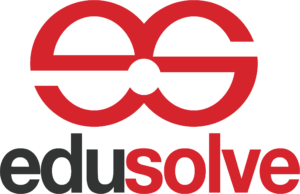In today’s fast-paced world, academic success alone isn’t enough to ensure that students thrive. Social Emotional Learning (SEL) plays a crucial role in equipping students with the skills they need to navigate life’s challenges, form meaningful relationships, and succeed both in school and beyond. But what exactly are the skills that students learn through SEL programs? Let’s dive in and explore the core competencies that SEL aims to develop.
Contents
Self-Awareness
Self-awareness is the foundation of SEL. It involves recognizing one’s emotions, thoughts, and values and understanding how they influence behavior. Students learn to:
- Identify their emotions accurately.
- Understand their strengths and weaknesses.
- Develop a growth mindset.
- Recognize the impact of their actions on others.
These skills help students build confidence and self-esteem, fostering a sense of purpose and direction.
Self-Management
Self-management is about regulating one’s emotions, thoughts, and behaviors in different situations. Through SEL, students learn to:
- Set and achieve personal and academic goals.
- Manage stress effectively.
- Practice self-discipline and impulse control.
- Stay motivated and persevere through challenges.
Developing self-management skills enables students to handle everyday stresses and make responsible decisions.
Social Awareness
Social awareness involves understanding and empathizing with others, including those from diverse backgrounds and cultures. Students are taught to:
- Show empathy and compassion.
- Recognize and appreciate diversity.
- Understand social and ethical norms for behavior.
- Identify support systems and resources in their community.
These skills help students build strong relationships and create inclusive environments.
Relationship Skills
Building and maintaining healthy relationships is key to personal and professional success. SEL programs help students to:
- Communicate clearly and effectively.
- Listen actively.
- Cooperate and work well with others.
- Resolve conflicts constructively.
- Offer and seek help when needed.
Effective relationship skills are essential for teamwork and collaboration in any setting.
Responsible Decision-Making
Responsible decision-making is the ability to make choices that are good for oneself and others. It involves evaluating the consequences of various actions and considering the well-being of all stakeholders. Students learn to:
- Identify problems and analyze situations.
- Reflect on ethical and safety concerns.
- Evaluate the potential outcomes of their decisions.
- Make reasoned and responsible choices.
By honing these skills, students can navigate complex situations and make positive contributions to their communities.
Conclusion
Social Emotional Learning is much more than a set of lessons; it’s a transformative approach to education that prepares students for life. By focusing on self-awareness, self-management, social awareness, relationship skills, and responsible decision-making, SEL equips students with the tools they need to thrive both academically and personally. At Edu-Solve, we are committed to fostering these essential skills, ensuring that every student has the opportunity to reach their full potential.
For more information on how SEL can benefit your child, visit our Social Emotional Learning page.
Also Read: How to Teach Social-Emotional Learning (SEL) in the Classroom?

